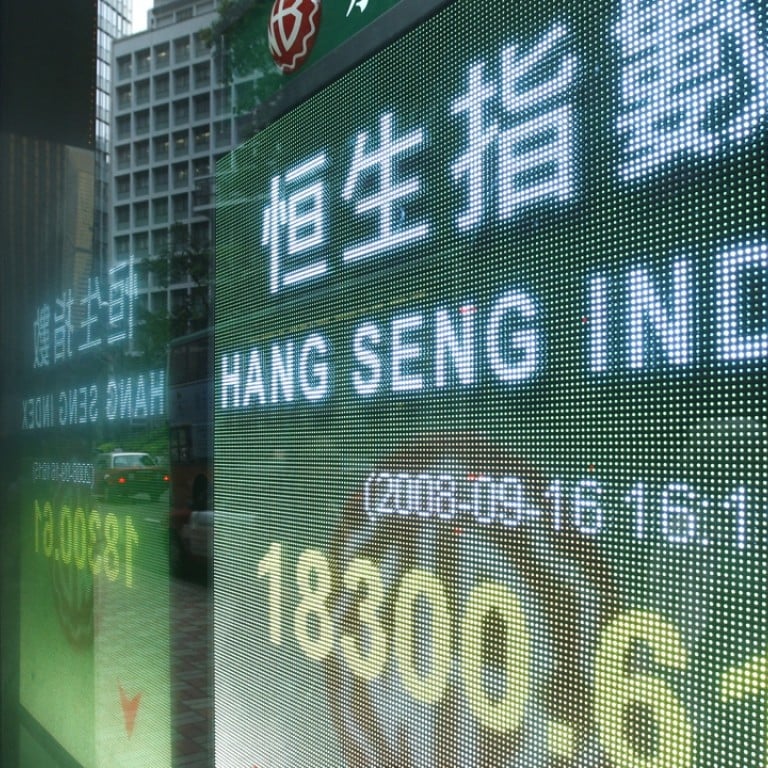
The crisis in markets shows how our financial and political leaders have failed since 2008
Financial calamity to come points to moral shortcomings in both China and the US
Oil prices and equity markets continue their slide and investors are seeking an explanation for events that could be ushering in a recession. And analysts can only try to provide a strictly financial explanation to the confusing data. It’s more useful to see the market action unfolding as a parallel morality tale between two countries: America and China. It could come to symbolise the manifest failures and intractable corruption of both countries’ public policies and the private sector.
Structural, systemic corruption has reached an egregious height. Corruption in the US financial system is not in the form of individual fraud or crime, but is perpetuated by an entire bipartisan political class. Their failure to reform the banking industry has prolonged the recession and set up overpriced equity markets for the next crisis.
In China, the misunderstanding of regulation versus control along with widespread business corruption are proving perniciously difficult to balance and handle

In the US, regulatory and market infrastructure reform by the entire political class was predicated that the economic crisis was entirely the result of private sector greed and misconduct. They failed to address the main causes of the 2008 economic crisis, which are returning along with an economically influential China.
What is amazing is not only did America barely survive a financial and monetary meltdown, but continued to fight and finance an expensive war on two fronts in Iraq and Afghanistan. Other historical superpowers would have collapsed or retreated, leaving themselves vulnerable to invasion.

The current decline shows that the economic recovery since June 2009, channelled trillions of dollars that didn’t benefit the real economy. Instead, they inflated the prices of financial assets. Artificially supported stock and bond markets became the proof of a healthy economy.
And such a huge distortion eventually corrupted the data coming from the US government’s statistical agencies. Federal Reserve data contradicts itself. Despite positive unemployment figures, other Fed data shows that today 50 per cent of 25 year old Americans are living with their parents or grandparents because they cannot find employment sufficient to sustain an independent lifestyle- up from 25 per cent in 1999.
In the 1980s, a mainland government official visited the Hong Kong stock exchange floor. He asked about the all the activity on the screens and boards and a Hong Kong official told him they represented changing prices. The mainland official asked, “Why don’t you just freeze the prices?”
While Beijing’s understanding of free markets has improved, it has created other financial problems. Total debt has ballooned from less than 160 per cent of gross domestic product to nearly 260 per cent- a growth rate that is almost three times faster than the US debt expansion before the subprime crisis. Worst of all, the accuracy of economic and financial data coming out of China’s public sector is so doubtful that it degrades trust in the data being issued by private Chinese companies.
The writhing financial analysis out there is only useful in the context of a debate on public policy. That capitalism is the only system that works is accepted as a truth, but it inevitably leads to an excessive pursuit for even more profit.
It was scandalous that US rating agencies approved, as investment grade, trillions of dollars of securities that they must have known were dubious. And the degrading quality of Chinese debt could reveal similar atrocities. As one rating agency employee joked to me, “We tell our mainland Chinese clients that their lack of morality doesn’t affect their credit rating.”
Only governments can deal with the ensuing crisis of capitalism not because bureaucrats actually know more than bankers, but because the governments create and enforce laws and control the money supply.
The financial industry and political leadership have failed the people. Now we are bearing witness to a harsh reckoning by the financial markets. The moral carnage will surely be as widespread as the financial calamity.

